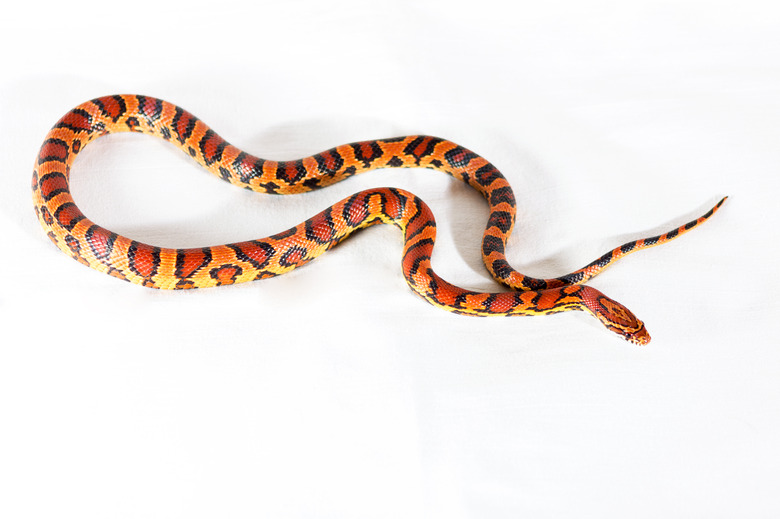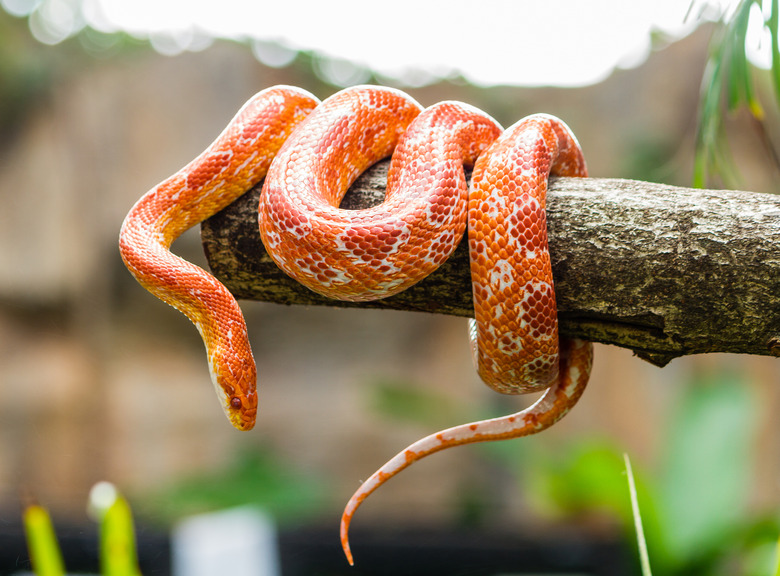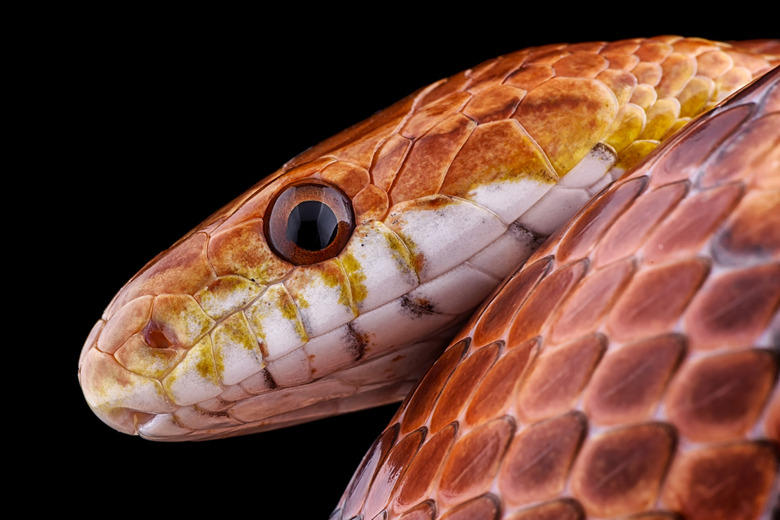Do Snakes Make Good Pets?
Dogs, cats, bunnies, parrots, hamsters, guinea pigs— they're not for everyone. You might be in a more reptilian frame of mind when it comes to pets. If you're thinking of getting a snake as a pet, here's some basic information you need to know before you slither down that path.
How long do snakes live as pets?
How long do snakes live as pets?
It really depends on the species, of course. Commonly, snakes like corn snakes, ball pythons, boa constrictors, and kingsnakes are the ones people will keep as pets. Corn snakes live 5-10 years. Ball pythons can live from 20-30 years. Boa constrictors can live up to 30 years. Kingsnakes can live about 20-30 years.
What do snakes eat?
What do snakes eat?
Snakes, by nature, are all carnivores, and they swallow their food whole. However, some prefer warm-blooded prey like rodents (mice, gerbils, rats, hamsters, etc), rabbits or birds. Others will seek out insects, slugs, earthworms, frogs or amphibians, eggs, other reptiles, and even fish. When feeding your pet, never feed it a live rodent. Frozen or thawed rodents are typical food for most pet snakes.
How much space do snakes need?
How much space do snakes need?
It depends on the species, but at least a 20-gallon (30″x12″x12″ (76x33x33 cm)) terrarium (also called vivarium) is typically suggested for most snakes. However, corn snakes can be more active than other species, and adult corn snakes and ball pythons can require as much room as a 40-gallon (36″x18″x16″ (90x45x45 cm)) terrarium. If you start with a 20-gallon terrarium, you can move on to a 30-gallon one as your snake grows in size. It is typically best to only have one snake per terrarium.
What are snake personalities like?
What are snake personalities like?
Snakes tend to be rather solitary, though other species may be a bit more aggressive. Unlike dogs, for example, snakes most likely do not feel affection or loyalty toward their owners. However, they can become accustomed to their handlers over time. Snakes also do not like loud noises, but do prefer consistency (perhaps it makes them feel safer). Thus, you can try to keep feeding and cleaning on a certain schedule to maintain a routine.
Can you train a snake?
Can you train a snake?
In short, not really. Do not confuse a snake for a dog. They cannot be trained in the same way. However, they can become accustomed to routines and actually remember them their entire lifespans. Commanding snakes to do certain tasks will not be possible as with a dog.
Bonding with your snake
Bonding with your snake
Though bonding with your pet snake won't be the same as bonding with a cat or dog, you can handle it occasionally to let it learn to trust you. Basically, the more time you spend with it, the more likely it will become accustomed to you and learn to relax around you, but don't overdo it either. Some recommendations for corn snakes, for example, allow for handling 1-3 times weekly but not more than once a day.
Where you can own a snake in the United States
Where you can own a snake in the United States
Non-venomous snakes are legal in the United States, except for corn snakes in Georgia. Surprisingly, most states in America even have laws regulating the ownership of venomous snakes. In many of them, you can actually legally own a venomous snake provided you have a permit. Non-venomous snakes also require a permit/license in many states.
The state of Georgia, on the other hand, actually prohibits the possession or killing of native non-venomous snakes like corn snakes (to prevent people from going out to catch them in the wild). However, native venomous snakes can be kept with a permit.
Hawaii prohibits the possession of any exotic animals in general, whether or not they are venomous. This is necessary to protect the state's ecology.
In Louisiana, it is illegal to own a venomous snake or snake that is longer than 12 feet without a permit.
You will most likely want to purchase a non-venomous snake for a pet, and shouldn't have a problem, but if you do want to keep a venomous snake, make sure you inquire with your state's laws to determine whether you will need a permit, or whether you can have one at all.


